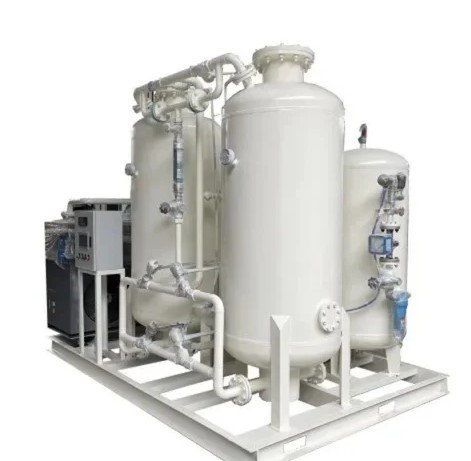Civil Hospital under scrutiny as probe begins into fatal supply fault; families say deaths could’ve been avoided
It was supposed to be just another night in the ICU. Instead, it ended in horror. Three patients who depended on ventilator support at Jalandhar’s Civil Hospital lost their lives after a sudden and unexplained disruption in oxygen supply.
A technical snag, an oil leak, and a system designed to save lives failed them. Now, a nine-member panel has been tasked with figuring out what exactly went wrong — and why no one acted in time.
Three lives lost, families shattered
The three patients — a woman recovering from a snakebite, a young man brought in after a drug overdose, and a tuberculosis patient — had all been showing signs of recovery, according to their families. What should’ve been hopeful stories ended abruptly when oxygen lines reportedly stopped working due to a plant fault.
Archana’s brother, Shivam, said she had been admitted for ten days and was “getting better.” He remembered how, just hours before her death, she had smiled at him. Then came the panic.
“Doctors said there was a technical issue… then they told us she was serious. Minutes later, they said she was gone,” he said, voice cracking.
Her family isn’t alone in their disbelief.
Two other families received similar news: their loved ones had passed away, not from disease, but possibly from a system’s failure that couldn’t — or wouldn’t — react quickly enough.
Official version vs. staff murmurs
Hospital Medical Superintendent Dr Raj Kumar Baddhan confirmed the deaths and attributed the cause to a “technical fault” in the hospital’s oxygen plant. He stated the issue stemmed from an oil leak, which disrupted the oxygen supply for a brief but deadly window.
“There were five patients on ventilator support. Three died. A nine-member committee has been formed to probe the incident,” Dr Baddhan said, adding that accountability would be fixed based on the report, expected by Tuesday.
But the official narrative isn’t sitting well with everyone inside the hospital.

According to sources within the Civil Hospital, any disruption in oxygen triggers a high-decibel alarm that is “impossible to miss.” One senior nurse said bluntly, “Unless the response was very late, it shouldn’t have led to patient deaths.”
The same insider hinted that staffing delays and inadequate supervision in the ICU may have played a bigger role than the administration wants to admit.
Timeline of events under probe
Based on testimonies from hospital staff and relatives, the events likely unfolded over a 45- to 60-minute window on Sunday evening.
Let’s break it down:
-
6:30 PM: Routine check on ventilated patients begins
-
6:45 PM: Alarm for oxygen pressure drops goes off (as per sources)
-
6:55 PM: ICU staff notices a drop in patients’ vitals
-
7:05 PM: Families are informed of a “technical fault”
-
7:15–7:30 PM: Three deaths occur within minutes of each other
This chain of events raises troubling questions. If there was indeed an alert at 6:45 PM, could quicker intervention have prevented the fatalities?
Inside the oxygen plant: What went wrong?
The hospital’s oxygen infrastructure — like most in public sector facilities — is a mix of automated valves, manual backups, and pressure controls. At Civil Hospital Jalandhar, a minor failure can be mitigated if timely action is taken.
Here’s what we know:
-
The plant suffered an oil leak, likely within the air compressor section.
-
This caused pressure instability and eventually triggered the oxygen shutdown.
-
Ventilator systems didn’t immediately shift to alternate cylinders.
-
Manual switching, which takes a few minutes, wasn’t done in time.
A quick reference from a hospital technician reveals how the oxygen system is structured:
| System Component | Role | Risk if fails |
|---|---|---|
| Oxygen Compressor Unit | Maintains flow pressure | Disruption causes drop in O2 |
| Mainline Valve | Controls distribution | Delays affect all ventilators |
| Alarm Monitoring System | Notifies staff of failures | Missed alerts = critical loss |
| Backup Cylinders | Act as emergency reserves | Manual switch must be fast |
The plant had been certified functional in its last quarterly check, according to a senior engineer. But if basic redundancies failed in the moment, that certificate means little now.
Staff fatigue and red tape make a deadly combo
Behind the walls of most public hospitals in India lies a silent crisis: overworked staff, crumbling infrastructure, and red tape that blunts every emergency.
Some ICU staff at Civil Hospital have been clocking in 12-hour shifts with barely a break. One of the junior doctors privately admitted, “We are understaffed and overburdened. The alert was missed because we didn’t have enough people monitoring.”
A few key problems behind the tragedy, according to insiders:
-
Lack of dedicated night ICU staff
-
Delayed communication from oxygen plant to ICU
-
No dry-run drills for emergency oxygen failure
-
Backup cylinder switch training outdated
One nurse added, “We’ve raised issues for months. But who listens?”
Will accountability mean anything this time?
The probe panel, which includes senior administrators, biomedical engineers, and one retired judge, has been given just 48 hours to file its initial report. That’s fast, but families fear it might be just another eyewash.
Here’s what people in the hospital and local health circles say must happen now:
-
Audit of all oxygen plants in Punjab’s public hospitals
-
Mandatory real-time oxygen monitoring dashboards
-
ICU-specific staff posted for each ventilated patient
-
Training and certification updates for all critical care nurses
Just last year, a similar case in Uttar Pradesh made headlines — two newborns died in a district hospital after oxygen ran out. Promises were made. Reports were filed. Nothing changed.
Jalandhar’s case might be different only if heads roll and systems change. But for three grieving families, accountability won’t bring loved ones back. It might, however, prevent the next tragedy.
